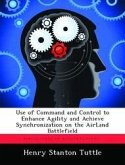That warfare is an uneven cycle of activity is undisputed. The most violent and active periods of war are inevitably followed by pauses in operations. Carl von Clausewitz recognized this phenomenon and devoted substantial comment in his famous treatise On War on the subject of "suspension of activity in war". Operational pauses are acknowledged in FM 100-5 as well in discussions on the culminating point of operations. Given that operational pauses are inherent in warfare, are they to be considered merely delays in accomplishing one's mission or are they of some utility in the practice of operational art? The purpose of this monograph is to determine how operational pauses may be used to one's advantage in campaign planning. A number of historical cases are examined to determine where, when, and why operational pauses have been executed in the past. Analysis of these cases indicate that the most apparent reasons for a pause are weather, shift in the main effort of operations, political constraints, and the combat power of a force reaching culmination. Further analysis reveals that in all cases except that of a force reaching its culminating point the commander had little influence over where and when the pause was executed. It follows, therefore, that for an operational pause to be of any utility it must be planned and/or executed in a known relationship to the culminating point. Key to controlling operations in a known relationship to the culminating point is the ability to recognize it as a culminating point. This idea is explored and doctrinal implications are then discussed in terms of the AirLand Battle tenets of initiative, agility, depth and synchronization. The paper concludes with an assessment on the utility of operational pauses in campaign planning and comments on additional considerations.
Bitte wählen Sie Ihr Anliegen aus.
Rechnungen
Retourenschein anfordern
Bestellstatus
Storno









